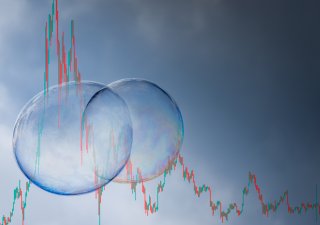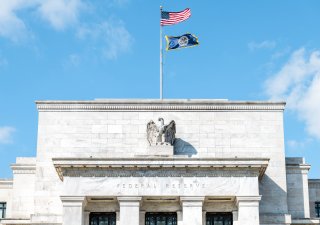Stock markets around the world are hit on Wednesday and Thursday. Fall. Maybe a bubble burst, even a “super bubble”. Stock market pessimists compete in gloomy predictions of what will happen after the end of the ongoing two-day meeting of the US Federal Reserve.
The main result of the meeting will be known on Wednesday at eight o’clock Central European Time, the press release of Fed Chairman Jerome Powell will start half an hour later.
This is undoubtedly a groundbreaking meeting. Due to the fastest inflation in decades, the Fed must take strong action to tighten its monetary policy. Which is bad news for stocks. The era of extremely cheap loans is coming to an end.
However, the current Fed meeting will be more about signaling. The central bank will let the world know the intended “timetable”: how it actually intends to tighten its monetary policy in the coming months. If it does not signal too much force, no major stock market crash may even occur. A certain tightening of monetary policy is already included in stock prices – after all, the main indicator of American stock exchanges, the index Standard & Poor’s 500, has fallen by about a tenth this year.
Betting on European stocks will be better this year than on American ones, investors believe
The universal recipe for enrichment for many years was a bet on the growth of the US economy in the form of investments in the S&P 500 index. It grew by almost 30 percent last year and was one of the most successful indices in advanced economies. But now we are entering a much more difficult period, the economists agreed at the conference Investment Outlook 2022, organized by EMUN Investment Company. Nevertheless, even at this time, it will be possible to value your assets and protect them from inflation, confirm active investors.
On the contrary, the stock exchanges will perceive a certain tightening of monetary policy in part and favorably. As proof that the Fed believes in the further and continuing recovery of the American and global economy after the pandemic strike of the past two years.
Mostly reasonably
If today The Fed signals the tightening of its monetary policy adequately, it does not have to mean anything bad for the shares. So what exactly does “reasonable” mean?
The Fed will be reasonable if it indicates that the first increase in the key interest rate will take place in March. And that it will be in the range of 0.25 percentage points. If the Fed signals a possible March increase in the key interest rate by 0.5 percentage points, it could already scare the stock market. In such a case, the shares would quite possibly fall significantly.
The Fed will be reasonable even if it announces its asset purchase program for new billions of dollars (quantitative easing) will end in March this year. If he announced that he would do so in February, the stock exchanges would be somewhat surprised, but “they would take it.” In the end, even the February end of the asset purchase program would not necessarily mean a more significant fall in shares.

Technology stocks have experienced the worst week in twenty years. Is there a risk of a bubble burst?
The Nasdaq 100 index, which includes shares of the most famous technology companies, lost 1 percent of its value every day, Bloomberg reported. Such a bad week the popular sector has not experienced twenty years. At that time, the so-called touch bubble burst.
In the end, a reasonable Fed will, if it announces the start of the reduction of its swollen, in dollar terms almost a nine-billion balance sheet at the earliest this September. An earlier date could upset the stock market again.
Of course, Fed Chairman Powell, in justifying the Fed’s actions, may make some unforeseen statement that stock exchanges will take as signal to panic. This can never be completely ruled out. We’re just people. However, if the Fed adheres to today’s expected scenario, ie “preparing stock exchanges for a reasonable tightening,” no stock will fall. No need to keep wallets. On the contrary, there may be more general relief and subsequent stock growth.

Trader’s Week: Fear of the Fed continues to terrorize world stock markets
The Fed’s fear of faster interest rates continues to terrorize global stock markets, but it is possible that the better is waiting for us. This is a brief description of the past week in the financial markets, where investors continued to monitor developments in US 10-year Treasury bonds and their impact towards the rotation of technology stocks. And what were the main events of the past period?
–


